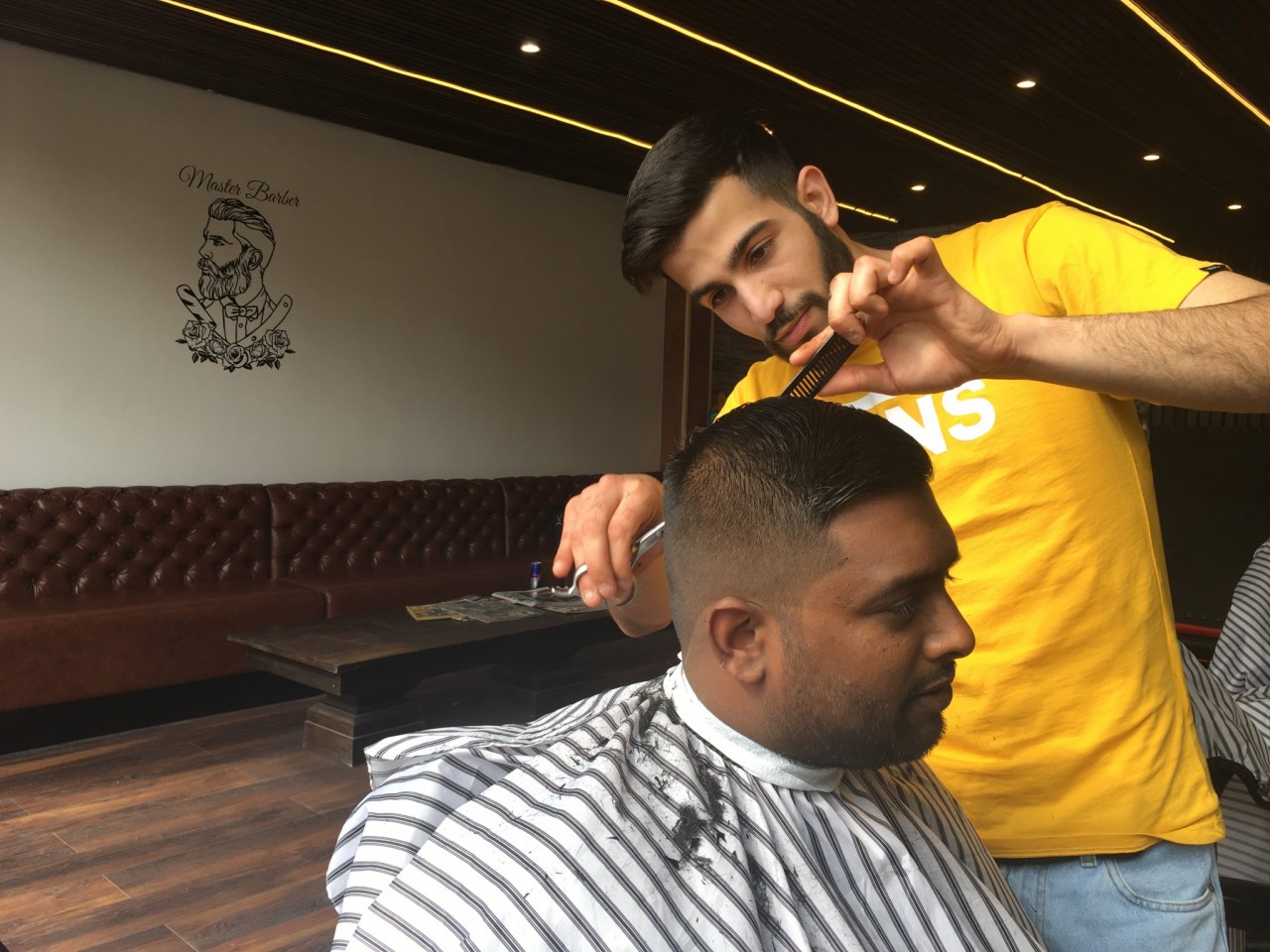The BBC recently reported that a barber shop in Derry was offering men the chance to open up about their mental health, partly because a lot of their customers had said that would prefer to talk about their problems with their barber than with a doctor. In the short BBC film one of the customers discusses his brother’s suicide, and another comments on the pressure some men feel to keep their feelings inside.
So I decided to visit Master Barber in Sidcup to see whether men opened up in the chair there as well. Run by Fryad Najdat, who is originally from the Iraqi part of Kurdistan, I thought Master Barber was unlikely to attract sensitive chaps who like to open up, but soon learned different…
“Some customers want someone to talk to that isn’t a friend or a family member,” Fryad told me. “I guess because men don’t open up like women do. One guy told me how his wife had cheated on him and she later stopped him from seeing the kids. It impacted the guy in a very bad way. Now he feels very depressed that he can’t see his own kids even though she was the one who was not faithful.”
Fryad also remembers a customer who opened up about his addiction to gambling. “He started off betting on small things like football or horses but then it slowly became an addiction. He was a successful man, happily married with two kids and suddenly he lost it all because of his addiction.” Fryad wondered whether as the man had lost his family home, he saw the barber shop as an alternative home – a place where he could be listened to without being judged.
When I asked Fryad why some customers might want to take advantage of the Derry shop’s special Friday ‘mental health’ haircut sessions he said, “The problem is that counseling and professional help isn’t given to men as much, or to anyone in fact, because it can take up to months or a year at times just for someone to get professional help, and sometimes that can be too late for some people…”
For this Sidcup barber then, the Derry idea was a good one, so much so that Fryad suggested that barbers could be taught how to spot early signs of mental distress, in case they could help before it was too late.
“As a barber we come across people every day,” he said. “Many have happy faces, but how many of these men are covering up their problems?”




